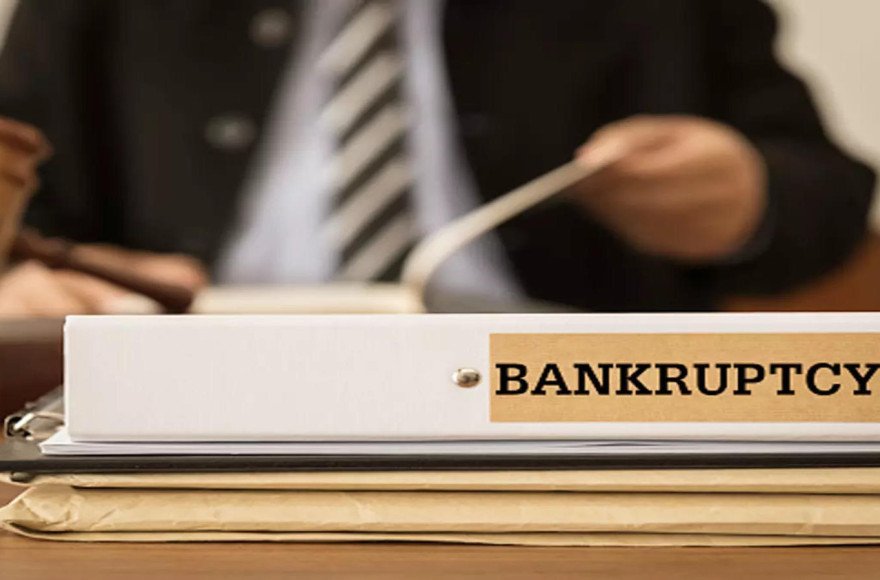Share

Banks are urging changes to insolvency regulations to prevent promoters from manipulating their companies’ size to qualify as MSMEs and retain control during bankruptcy proceedings. This move aims to address concerns about delinquent borrowers exploiting the system by downsizing assets and staff to benefit from special provisions for MSMEs. Banks will push for a change in the insolvency regulation to avoid getting short changed by promoters fishing for a cozier deal. Lenders have come across instances where delinquent borrowers have sharply written down the assets, shrunk their size and headcount, to masquerade as small or medium scale enterprises which are spared of one of the stringent conditions of the insolvency and bankruptcy code (IBC). Lenders have come across instances where delinquent borrowers have sharply written down the assets, shrunk their size and headcount, to masquerade as small or medium scale enterprises which are spared of one of the stringent conditions of the insolvency and bankruptcy code (IBC). In companies that are not registered as MSMEs, promoters are barred under Section 29A of the insolvency law to bid for it. Bankers fear that some borrowers are gaming the system by downsizing their asset book to obtain the MSME tag. In perpetrating such a strategy, a company would register with Udyam, a Government Portal that certifies a company as an MSME, by filing a revised valuation, balance-sheet, staff strength and other information like the Adhaar details of the directors on the Government Portal. It’s a quick and simple process once the relevant documents are uploaded. The investment and turnover limits for a `medium’ enterprise is Rs 50 crores and Rs 20 crores while that for a `small’ enterprise is Rs10 crores and Rs 50 crores, respectively. “Banks plan to approach the Insolvency and Bankruptcy Board of India (IBBI) to suggest that the point at which a borrower became an NPA (or, non-performing asset) should be taken as the relevant date for considering the investment and turnover in assessing whether the entity qualifies as an MSME, and not the date when creditors file for bankruptcy,” an industry person told ET. The subject was recently discussed among by senior bankers at a meeting this month. Legal practitioners, however, believe lenders should refrain from taking a sweeping view on the subject.
According to Ashish Pyasi, Partner at the law firm Aendri Legal, “In any industry, there are ups and downs and it is possible that the value of the company gets depleted over time due to business challenges faced by such a company. If that results in a situation where the company will become a MSME, then such change in status cannot be denied. The banks are having apprehension that this will lead to abuse of exception carved out to MSME in IBC. Therefore, complete denial of this exception would defeat the purpose and will deny the genuine cases. If the promoters have done this fraudulently then they can be prosecuted for the same. Bankers declare the account as fraudulent and then they take further steps so in those cases the MSME exception may be denied. A pragmatic approach is very much the need of the hour.” IBBI, which was established in 2016 under the IBC, is responsible for the implementation of the Code that consolidates and amends the Code relating to reorganization and insolvency resolution of corporate persons, partnership firms and individuals. A borrower is given the NPA the tag when loan principal or interest is overdue for 90 days. Given MSMEs’ contribution to national income, the large number of people such businesses employ and losses suffered in the wake of the Covid pandemic, the ‘pre-packaged resolution process’ (PPIRP), a separate framework for resolution of troubled MSMEs was carved out by amending the law in 2021. This followed a relaxation in 2018 preventing MSME promoter from being categorised as ‘willful defaulter’ or being disqualified to put in a bid for a turnaround plan. Unlike the resolution regulation for larger companies, an MSME promoter can retain control and work with the resolution professional (RP) in participating in the ‘pre-packaged resolution process’. Under this, the RP opens the doors to other bidders only if the plan submitted by the existing management of an MSME is considered inadequate in meeting the dues.
Related Posts
SEARCH SMECONNECT-DESK
RECENT POST
- New Passport update: Adding spouse’s name to passport no longer needs marriage certificate, says MEA- Details here
- Indian start-ups are chasing ‘brain-dead’ ideas, says Vivek Wadhwa; urges entrepreneurs to tackle problems with smart tech:
- Mohandas Pai bashed me for my appeals for start-ups to focus on innovation; it is unfortunate: Piyush Goyal:
- TReDS: Govt. reduces turnover threshold to Rs.250 crores to get more companies on invoice discounting platform:
- Sebi against exuberance, price manipulations in SME listings; Board to discuss it soon: WTM Bhatia









